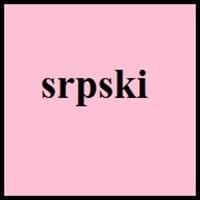Countries
Bosnia and Herzegovina, Kosovo, Serbia, Slovakia
Barbados, Belize, Botswana, Cameroon, Canada, Dominica, Fiji, Ghana, India, Ireland, Jamaica, Kenya, Malta, Mauritius, Micronesia, Nigeria, Pakistan, Philippines, Rwanda, Saint Kitts and Nevis, Samoa, Sierra Leone, Singapore, Somaliland, South Africa, South Sudan, Sudan, Tanzania, Trinidad and Tobago, Uganda, United Kingdom, Zambia, Zimbabwe
National Language
Bosnia, Croatia, Montenegro, Serbia
Anguilla, Antigua and Barbuda, Bahamas, Barbados, Belize, Bermuda, Cayman Islands, Gibraltar, Grenada, Guam, Guyana, Jersey, Montserrat, Nauru, Singapore, Trinidad and Tobago, United Kingdom, United States of America
Second Language
Not spoken in any of the countries
India, Nigeria, Pakistan, Singapore
Speaking Continents
Europe
Africa, Asia, Australia, Europe, North America, Oceania, South America
Minority Language
Croatia, Czech Republic, Hungary, Macedonia, Montenegro, Romania, Slovakia
South Africa
Regulated By
Board for Standardization of the Serbian Language
Not Available
Interesting Facts
- Serbian language was derived from the Old Church Salvic, as the language was commonly spoken by most of Slavic people in the 9th Century.
- Serbian language is based on Stokavian dialect.
- Most of the English words begin with the letter S than any other letter.
- English is third most commonly spoken language in the world.
Similar To
Bosnian and Croatian Languages
Not Available
Derived From
Not Available
Latin
Alphabets in
Serbian-Alphabets.jpg#200
English-Alphabets.jpg#200
Scripts
Cyrillic, Latin
Latin
Writing Direction
Left-To-Right, Horizontal
Left-To-Right, Horizontal
Hello
Здраво (Zdravo)
Hello
Thank You
Хвала лепо (Hvala lepo)
Thank you
How Are You?
Како си? (Kako si?)
How are you?
Good Night
Лаку ноћ (Laku noć)
Good Night
Good Evening
Добро вече (Dobro veče)
Good Evening
Good Afternoon
Добар дан (Dobar dan)
Good Afternoon
Good Morning
Добро јутро (Dobro jutro)
Good Morning
Please
Молим (Molim)
Please
Sorry
Жао ми је (Žao mi je)
Sorry
Bye
Довиђења (Doviđenja)
Bye
I Love You
Волим те (Volim te)
I love you
Excuse Me
Извините (Izvinite)
Excuse Me
Dialect 1
Prizren-Timok
American English
Where They Speak
Southeastern Serbia
United States of America
How Many People Speak
Not Available
Dialect 2
Smederevo–Vršac
Hiberno-English
Where They Speak
Serbia
Republic of Ireland, United Kingdom
How Many People Speak
Not Available
Dialect 3
Torlakian
Welsh English
Where They Speak
Bulgaria, France, Kosovo, Macedonia, Romania, Serbia
United Kingdom
Speaking Population
Not Available
Second Language Speakers
Not Available
Native Name
српски (srpski) српски језик (srpski jezik)
English
Alternative Names
Montenegrin
Not Available
French Name
serbe
anglais
German Name
Serbisch
Englisch
Pronunciation
[sr̩̂pskiː]
/ˈɪŋɡlɪʃ/
Ethnicity
Serbs
Not Available
Origin
11th Century
5th Century AD
Language Family
Indo-European Family
Indo-European Family
Subgroup
Not Available
Not Available
Branch
Not Available
Not Available
Early Forms
No early forms
Old English, Middle English, Early Modern English and English
Standard Forms
Standard Serbian
Standard English
Signed Forms
Not Available
Signed English
Scope
Individual
Individual
ISO 639 6
Not Available
engs
Glottocode
serb1264
stan1293
Linguasphere
53-AAA-g
52-ABA
Language Type
Living
Living
Language Linguistic Typology
Subject-Verb-Object
Subject-Verb-Object
Language Morphological Typology
Not Available
Analytic, Fusional, Isolating, Synthetic
Serbian and English Speaking population
Serbian and English speaking population is one of the factors based on which Serbian and English languages can be compared. The total count of Serbian and English Speaking population in percentage is also given. The percentage of people speaking Serbian language is Not Available whereas the percentage of people speaking English language is 5.43 %. When we compare the speaking population of any two languages we get to know which of two languages is more popular. Find more details about how many people speak Serbian and English on Serbian vs English where you will get native speakers, speaking population in percentage and native names.
Serbian and English Language Codes
Serbian and English language codes are used in those applications where using language names are tedious. Serbian and English Language Codes include all the international language codes, glottocodes and linguasphere.





